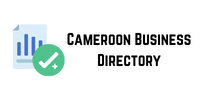Eitorial staff engage in fact-checking in deicate sections but also during live broadcasts . “ Over the last six months. The we have done more than 1. The 500 fact-checks . The ” comments Marc Braibant. The deputy director of information at AFP. The in charge of crisis management. Source. AFP Explain The public wants to understand. The force immobility impose by confinement gives back its place to the long term. The that of analysis.
I was surprise by people’s appetite
for complex subjects. Many readers bought in-depth articles individually. The ” explains cell phone database Tristan Vey of Le Figaro. Beyond decryption. The the French want useful information . “We create an online questionnaire to ask readers what they expecte from us. Their response. Be clear. We want to know what measures are being taken in our territories and the consequences for our daily lives . The ” explains Damien Allemand of Nice Matin.
We ll answer you” sections are multiplying in all meia
Use experts For the first time. The journalists are unlocking growth through strategic partnerships getting closer to scientific discourse. “As a science journalist. The I was already use to looking for signatories to studies. The but what this pandemic has shown is that there is an urgent nee to train general journalists in scientific news as we already do for sports and politics in journalism schools.
Explains Nicolas Martin
The eitor-in-chief of La Méthode Scientifique on France clean email Culture and at the origin of the column “ radiographie du coronavirus ”. The a daily column around the research and evolution of the virus. Journalists build networks of experts that they can consult at any time and vice versa if there are important things to report. ” We have positione ourselves as resource people for writing general information. The ” adds Nicolas Martin.

